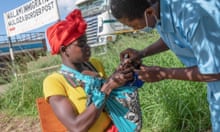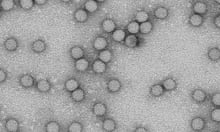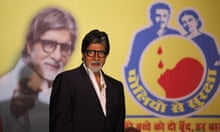Polio could be detected in wastewater in half the time using a new technique, helping public health authorities to respond quickly to deadly outbreaks, a study has found.
The research in the Democratic Republic of the Congo (DRC), supported by the UK’s Medicines and Healthcare Products Regulatory Agency (MHRA), represents the first time that (DDNS) has been used to detect polio, reducing the average testing time from 42 to 23 days, with an accuracy rate exceeding 99%.
Alex Shaw, a research fellow at the School of Public Health at Imperial College London, who was the lead author of study, said: “This method allows the rapid confirmation of polio strains, facilitating swifter vaccine responses that can reduce the number of polio cases stemming from an outbreak.”
The method can be adapted for detecting various pathogens, laying the groundwork for broader disease surveillance, he said.
Lag time in detection and testing, as well as a waning of vaccination rates, have hindered global polio eradication initiatives. Typically, stool samples from regions with polio outbreaks have to be transported globally for extensive lab tests, Shaw said. However, using the DDNS method, samples can be tested in the country of origin. This cuts down detection time by 19 days on average. Similar sequencing methods have been used before for Ebola, measles and mpox, the disease formerly known as monkeypox.
Javier Martin, the principal scientist in virology at the MHRA, said: “We are standing at a delicate and pivotal moment for the eradication of polio. While vaccination programmes have seen polio disappear in many countries, the delayed detection of outbreaks poses a major threat to those efforts. Expanding the DDNS technique globally, as we have done in the DRC and we are doing in several other countries, would greatly contribute to the completion of global polio eradication.”
Researchers also tested this technique in the UK when type 2 poliovirus was detected in London sewage between February and July 2022, triggering the polio catchup vaccination campaign for children under the age of 12.
Shaw said: “The past four decades, the world has made significant strides towards eradicating polio. However, challenges like decreasing immunity in high-risk regions and delayed surveillance threaten this global health achievement. The virus has emerged in areas considered safe, such as London, New York and Israel. To combat the virus, we need rapid detection, effective vaccine responses, and maintained high vaccine coverage worldwide.”
He stressed the need for further DDNS validation and greater investment in technology transfer in low- and middle-income countries.
Prof Placide Mbala-Kingebeni, a medical doctor and virologist at DRC’s Institut National de Recherche Biomédicale, said: “Collaboration and training with our partners has empowered the local team not only to master and confidently carry out this new technique but also to transfer the knowledge and skills to other African countries where poliovirus outbreaks are reported regularly.”
Although scientific techniques such as DDNS alone cannot eliminate polio, Shaw said they were instrumental in outbreak management together with comprehensive vaccination strategies.









